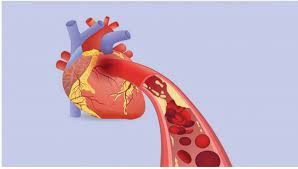Don’t Ignore These Early Heart Attack Symptoms That Started Showing Up in Your Body a Month Ago
In recent years, heart attacks have increased in frequency, increasing the risk of cardiac arrest and abrupt death. When rapid medical care is not readily accessible, knowing the warning signs and symptoms of a heart attack may save a life. Being aware of the many physiological symptoms that often appear before a heart attack might help people act quickly to reduce the risk. The human body may display a number of warning signs and symptoms prior to the start of a heart attack, which, if understood and recognized, may play a critical role in reducing possible dangers. Here is a thorough examination of these signs:
Restlessness and Unease: A feeling of restlessness and unease is one of the key warning signs of an oncoming heart attack. Patients often describe feeling agitated, as if something is wrong. An important indicator for getting medical help is being aware of this feeling and its persistence.
Consistent Chest Pain: The feeling of constant or recurring pressure, tightness, or burning in the chest may be an early symptom of a heart attack. It’s important to pay attention to any strange feelings or pain in the chest region since they might become worse quickly.
Unaccounted-for anxiousness is another typical sign that might come before a heart attack. It’s possible for people to feel dread or anxiety all of a sudden and intensely without any obvious explanation. This can be the consequence of the body’s natural reaction to the strain that the damaged cardiac function places on it.
Jaw discomfort: People who already have blood pressure problems should pay close attention to any jaw discomfort that doesn’t make sense, since this might be an early symptom of a heart attack. Often mistaken for a toothache, the discomfort may travel from the chest to the jaw. When in such distress, it is critical to seek emergency medical attention.
Chronic tiredness and sleep disruptions may be signs of an underlying cardiac condition. Chronic fatigue is particularly concerning when it occurs in conjunction with sleep abnormalities. It is important to pay attention to extended spells of weariness and seek medical advice to determine the underlying reason since this may be an early symptom of a developing cardiac condition.
Breathing Issues: The inability to take a deep breath or shortness of breath are signs of an oncoming heart attack. Even after brief periods of light physical exercise, patients may feel out of breath. If this symptom appears abruptly and for no apparent reason, it should be taken carefully.
Weakness and Clammy Sweating: Generalized feelings of weakness or sudden, inexplicable sweating that is often accompanied by a clammy or sticky feeling on the skin might be early signs of a developing cardiac condition. Monitoring these symptoms and contacting a doctor may aid in prompt treatment and intervention.
Dizziness and nausea: The beginning of these symptoms, particularly when they occur along with other symptoms, may be a precursor to a heart attack. Such symptoms could develop as a result of the heart’s failure to pump blood efficiently, which results in less blood reaching the brain and digestive system.
To effectively treat and avoid possible cardiac issues, it is important to be aware of these warning symptoms and seek immediate medical assistance when they appear.







